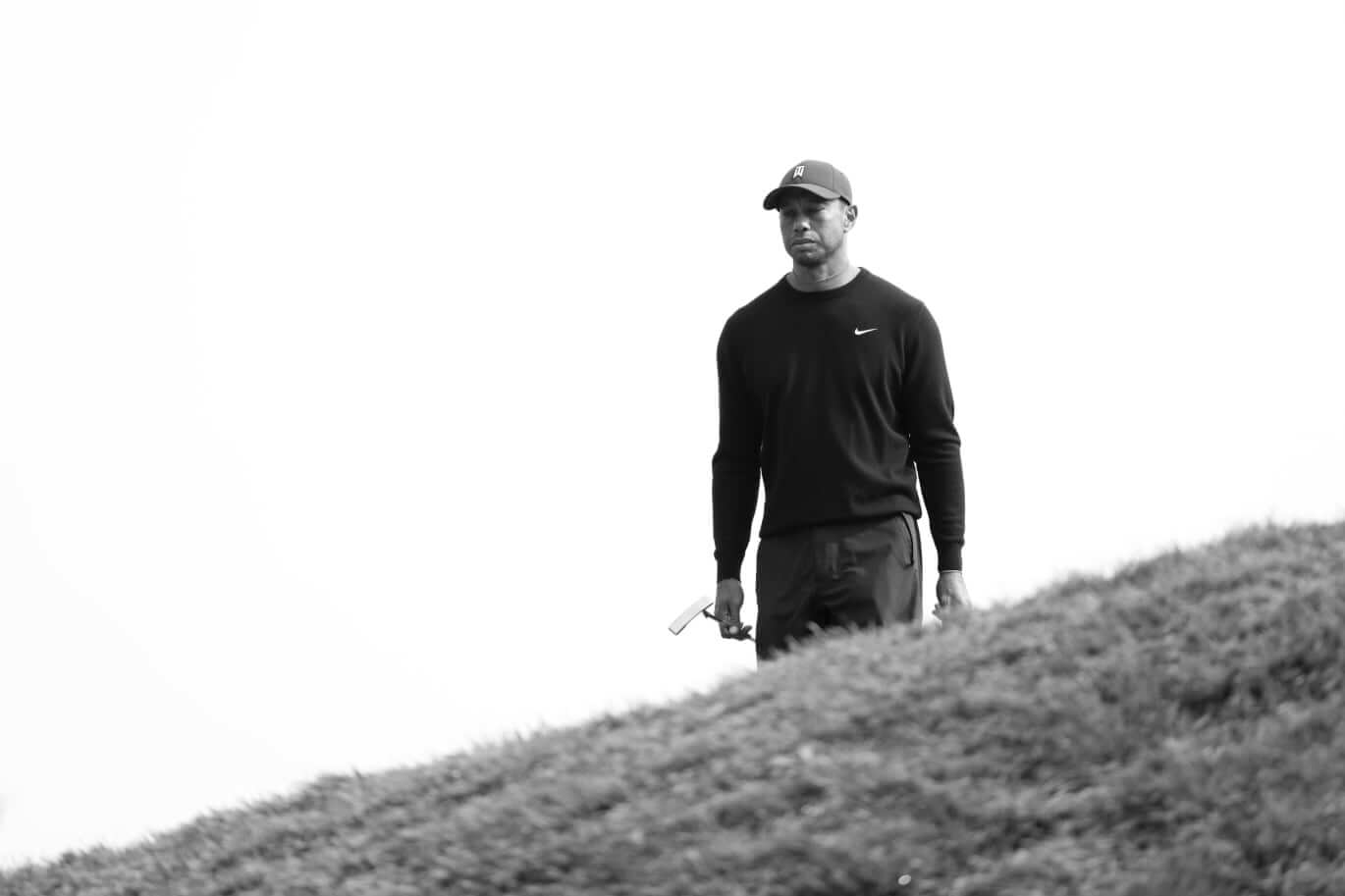“
So many of us stopped taking all but the most calculated risks, and we lost our aliveness in the process. We got practical and rational—all to preserve our pride.”


You’ll have to suck first.

Three times, during milestone runs of the PGA Tour career that would turn him into the most famous person to ever whack a Titleist, Tiger Woods did something unthinkable to the average person. He took the carefully honed, fully dialed swing (one that had been piling up hundreds of millions of dollars and major tournaments), scrapped it, and rebuilt from the ground up.
Golf critics will forever have their own opinions on if Tiger's perfectionist tweaking produced the best results, but to paraphrase Teddy Roosevelt (with some choice added grammar): it's not the fucking critic who counts. If you've ever watched Tiger Woods hit a golf shot, you've seen pure art. He is an artist dedicated wholly to his craft. He isn't playing for you or for me. He's playing for ... mastery.
And masters tend to do things differently. Steve Jobs reinvented Apple products—even best-selling ones—until he nailed the new specs he desired. Bob Dylan took a perfectly good Greenwich Village acoustic career, picked up a Fender and an amp, and rocked stadiums. My point? Great creators don't stick to what got them in the door. They keep moving. Great creators are also willing to do something that most of us shy away from: They're willing to suck. At least, for a little bit.
I was a kid in the '90s, when the worst thing you could do was suck at anything. You were a loser, a poser, or worse. And those monikers kept so many of us away from guitars, skateboards, canvases and notebooks lest we appear bad at something we earnestly wanted to do. We were told we could do anything, and yet ours was a generation dominated by shame. Then social media came around and made it worse: thousands of times per day, we were bombarded by the Photoshopped perfection of studio-tweaked products, brands and bodies. We came to believe that mastery wasn't so much a process as an event. Which has to be the biggest lie there is.
When you change anything in your life, you have to be willing to work through an at-times painful space that David Deida, author of The Way of the Superior Man calls: a period of unknowingness. “Cycles of strong, specific action followed by periods of not knowing what the hell is going on are natural for a man,” he says. For our purposes, let's call these periods the Suck Zone.
Woods took a tour through the Suck Zone while making swing changes the summer after his seismic victory at the Masters in 1997. He missed cuts, he hit it sideways, he shot 80. If you're a not a golf fan, let's just say, he didn't play like someone who had just shattered nearly every Augusta National record in a single weekend. And it took those stumbling summer days to yield the swing that would win him 37 tournaments and seven majors in the next seven years.


As men, we're particularly wary of the Suck Zone. Most of us avoid it like an STD. As boys, we never wanted the other guys to see us miss a shot, fail a test, or get turned down for a date less we appear weak. So many of us stopped taking all but the most calculated risks, and we lost our aliveness in the process. We got practical and rational, we gave up our spontaneity—all to preserve our pride. But preserving our pride is a futile attempt. We're gonna botch something sooner or later, even if we're seasoned pros.
I had a big suck moment a few weeks ago when an unskillful email led to some very difficult conversations with the members of a men's group I was leading. In the fallout, my immediate reaction was shame: I fucked up, and I deserved whatever anger was coming my way. I was a terrible person and a terrible leader.
Days later it hit me: Had the situation sucked? Yes, undoubtedly. Had I learned something? Absolutely. I had to admit I'd learned a lot. Had things seemed to work out for all parties involved, even if, on paper, things hadn't been graceful? Yes, yes they had.
“
So many of us stopped taking all but the most calculated risks, and we lost our aliveness in the process. We got practical and rational—all to preserve our pride.”
I'm a big believer that having our worst fears come true is a gift in disguise. And sometimes our sucking can lead to breakthroughs. Twelve men I cared for deeply all being unhappy with me at once was something of a personal hell, but now that it had happened? Well, I knew I could live through it. And that's pretty liberating.
We can look at the Suck Zone in the same way. If you can learn to expect it, even embrace it (just for a little bit), it becomes a source of strength. One of my coaches, Bryan Reeves, tells a story of a powerful reframe he once received from a friend: “I suck at this,” Bryan said. “No,” his friend said. “You're not practiced.”
And what if all of life was practice? A place to learn. A place to experiment. A place to suck and laugh knowing everyone else is sucking, too, and that we're all becoming better for it. Sucking is the same vulnerability Brené Brown writes about. Sucking is the collective willingness to transform a shame-based culture into a culture of empowerment and growth. Sucking is a world where we cheer each other along for doing things we're sure could get us killed, but actually free us. Sucking is the great unlock. Er, sorry, I mean practice!
So, I'm curious:
What would you do in your life if you weren't afraid to suck?
What's one small action you can take today that takes you closer to that edge?
If you looked at all of life as practice, what might change for you?
The greatest people to ever do it know that we have to be willing to suck, to lose everything as we fling ourselves into the present moment, the present conversation, or the present shot. And if you're willing to kick the tires and traverse the Suck Zone for a while, you might just drop effortlessly into greatness.
You’ve now got a life coach at your disposal. Hit Sean up with any concern you’re currently struggling with: Trouble at work? Relationship worries, family struggles or general mental health concern? Let him help you tackle it each month in this column.
Advertisement